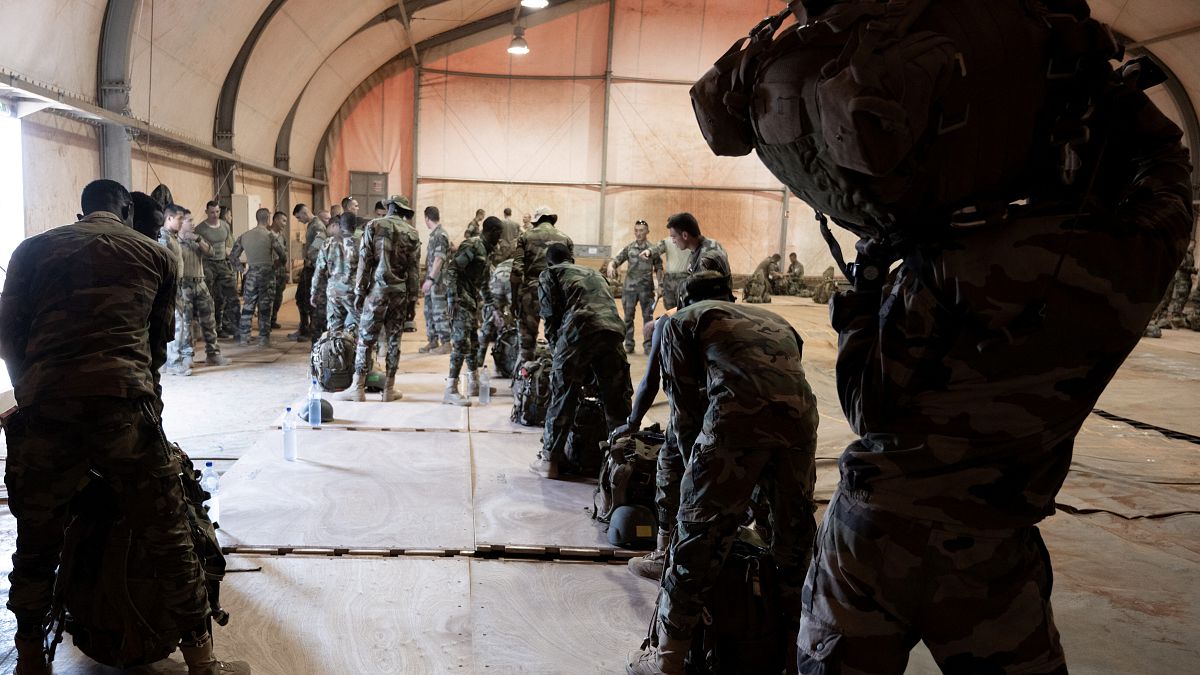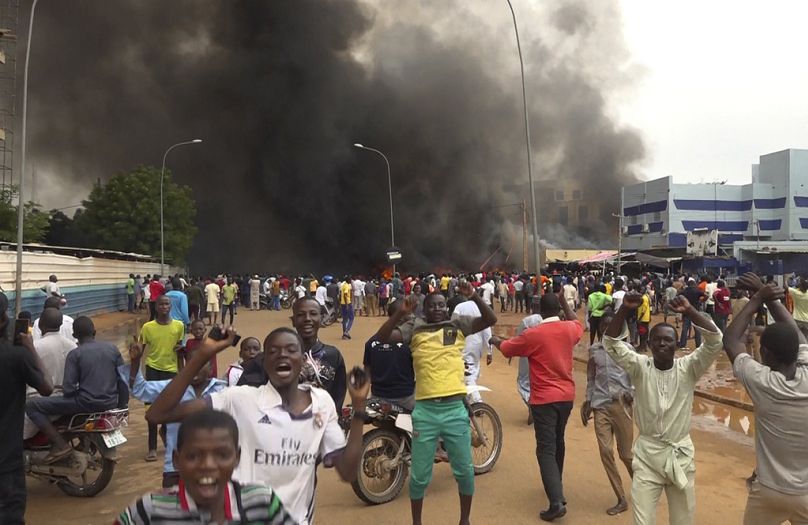Anti-French protests outside embassy compound in Niamey marked a new hostility towards Paris's operations in the Sahel.
The first French soldiers have departed from Niger as part of a withdrawal demanded by the country's ruling military junta.
According to several security sources, the troops departed in a ground convoy under local escort, leaving from the west of the country.
Niger's generals first demanded that France pull all troops out of the country shortly after they came to power in a coup at the end of July, and French President Emmanuel Macron announced their departure at the end of September.
A convoy of soldiers arrived in Niamey at midday on Tuesday, along with lorries carrying equipment and armoured vehicles, according to AFP reports. A plane carrying French equipment and an initial group of priority military personnel (medical evacuations in particular) also took off from Niamey on Monday, another military source said.
The final destination of the French convoys has not been officially announced. According to sources close to the matter, they are heading for Chad, traversing more than 1,600 kilometres of roads and tracks to reach the capital, N'Djamena – home to the command centre for French Forces in the Sahel.
The military regime announced last Friday that the withdrawal of the French soldiers would take place "in complete safety".
The coup in Niger this summer saw crowds assemble outside the French embassy demanding that its staff and their associated military forces leave the country. Many of those present waved Russian flags and signs supporting the Kremlin-backed Wagner mercenary group, which has become a major security player in many African countries.
However, it is not clear how broad or deep Russia's support base in Niger genuinely is.
End of an era
Over the best part of a decade, around 1,400 French soldiers and airmen have been deployed in Niger to fight jihadists alongside the Nigeriens, including around 1,000 in Niamey and 400 in the western "three borders" zone where the country abuts Mali and Burkina Faso.
Starting in the summer of 2022, following France's departure from Mali and then Burkina Faso, Niger had become the key partner for French anti-jihadist operations in the Sahel, where armed groups affiliated to the Islamic State and al-Qaeda are rampant.
After concluding a combat partnership with Niger against jihadist groups, France discreetly expanded the compound in Niamey with armoured vehicles and helicopters, to reinforce the five Reaper armed drones and at least three Mirage fighter jets already on site.
Located within Niger's base 101 in the capital, the compound houses hundreds of prefabricated buildings used as offices, IT equipment, hangars and modular shelters for aircraft, tents for the living quarters, cockpits for the drones, engineering bulldozers and fire trucks.
France says it has no intention of handing any materiel over to the Nigerien army.
This new withdrawal presents the French with a major logistical and security challenge. Travel options are limited and even dangerous, with the risk of anti-French demonstrations and the presence of jihadists linked to Boko Haram and the West African branch of the Islamic State in the Diffa area of eastern Chad.
Niger's land borders with Benin and Nigeria have also been closed since the Nigerien coup d'état on 26 July that deposed President Mohamed Bazoum, a French ally. And the Nigeriens have banned French civilian and military aircraft from flying over their territory without an official exemption.
However, Niger has reopened its borders with Algeria, Libya, Burkina Faso, Mali and Chad.
If the French containers are transported to Chad, the journey will be long, arduous and dangerous. They will then have to transit through the port of Douala, in Cameroon, at the end of another complicated convoy, according to a source close to the matter.

